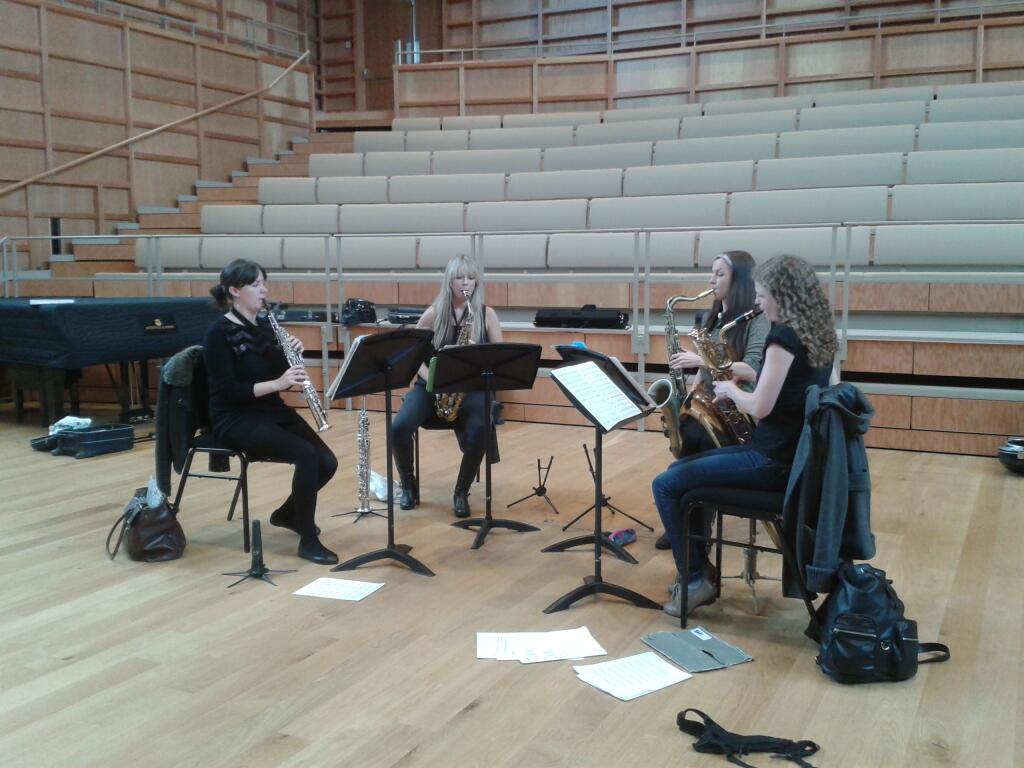This year’s lunchtime concert series burst into ecstatic life with a visit from the ebullient Marici Saxes, launching the year-long monthly series at the Colyer-Fergusson Hall.

The set opened with Michael Nymans’s Chasing Sheep Is Best Left To Shepherds, with the group in rhythmic, robust form. The tour of Britain continued with music by the late Richard Rodney Bennett, three sections from Travel Notes; the lyrical, arcing melody in ‘Helicopter’ effortlessly played by Sally McTaggart on soprano saxophone (a late stand-in for the indisposed Sarah Field, whom we wish well). There was a lively, jocular air to the final ‘Car Chase’ that showed to the full the wonderfully liquid grace of the group’s ensemble-playing, and demonstrated they have a real affinity for this repertoire.
Michael Torke’s July is a tour de force for a sax ensemble, and was here delivered with assurance and a firm grasp of its rhythmic drive, coupled with contrasting, elegaic melodies. There was a punchy, vibrant swagger to the piece which was bursting with vigour, as the group ducked and dived in terrific unison through Torke’s no-holds-barred minimalism.
A change of mood next in Piazzolla’s ‘Cafe 1930’ from his Histoire de Tango, originally written for flute and guitar but here rendered for ensemble that had gently weaving lines spiralling up through the group.
Baritone saxophonist Josie Simmons turned composer for First Moon which followed, and showed a keen ear for dissonance in the opening chords, turning into a rhapsodic melody before springing to life in some mischievious post-minimalist textural writing, including some fiercly-skirling arabesques for the soprano sax.
The group ended its recital with the show-stopping Hoe Down by Will Gregory, in a performance that was truly hair-raisingly exciting, with some blistering agility displayed by Josie on baritone, who demonstrated that the instrument can be just as mobile as its smaller counterparts.
The piece, and the concert itself, was greeted with a roof-raising ovation from an enthralled audience, including a group of schoolchildren who were clearly held spellbound throughout the gig. A top-notch performance, delivered by an ensemble in fighting form. Catch them when you can…

